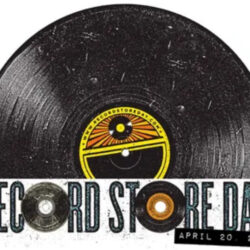It’s the time of year for saving money!

One of the things I remember about my old days as an audiophile,
before I ever started writing for the audiophile press, is that, whenever I and
my pals sat around bullshooting the latest toys and goodies there was — at
least conversationally — never any middle ground: Everything was either “Wonderful;
the latest and greatest” or it was “dogmeat.” To our delicate sensibilities (or
at least to our flapping lips), no other possibility existed or was even
necessary, and we freely embraced or mercilessly attacked everything, either in
our system or on the market, as if we were the gods of creation and it was our
divine right to enshrine or destroy whatever came before us.
Apparently a lot of people out there – audiophiles, and even
seasoned music industry and electronics professionals — still believe they
have that divine right and still, although the words may no longer be
“wonderful” or “dogmeat”, apply it with gusto to practically every audiophile
issue. Every day, on the internet, I see
some kind of comment about some thing or even some entire category of things
that does just what we used to do — reduces the subject at hand to either
purest good (“white”, for purposes of this article) or purest not-good
(“black”), and gleefully ignores everything in the middle.
You know what I’m talking about: It’s the sort of blanket
statement or intimation that absolutely all (take your pick) digital; analog;
tubes; transistors; cables; “tweaks”; this kind of loudspeaker driver or that
one; this kind of recording format, or digital conversion algorithm, or
computer software, or that one; even this kind of listener or that one – in
short, practically anything at all within the scope of this great hobby of ours
— is either “wonderful” or “dogmeat”.
When I and my friends were doing it, we were just exuberant
and verbally sloppy. In our heart of hearts, though, we knew that there could
be a middle ground; we were just too lazy or having too much fun to go and look
for it. Nowadays, I wonder if other people are doing the same as we did, but,
frankly, in many cases I doubt it.
Perhaps what I’m seeing is just trolls, who will attack
anything at all, just for the thrill and the blood of it, and don’t much care
about what’s really true. Perhaps the people on the other side are just zealots,
who will support their possessions, their positions, or their “team”,
regardless of anything, and also don’t care much about the truth. If that’s the
case, it’s fine with me: They’re having fun, and that’s what a hobby is for. Good
for them!
What worries me, though, is thinking that there might be people
out there who AREN’T playing, but who simply don’t understand that there can be
more to things than just “black” and “white”. People who, whether for lack of
training; lack of experience; lack of perception; or just sheer intellectual
laziness, might actually come to the conclusion that (just to cite an extreme example),
because it’s possible to tell a lie in the English language, nothing at all in
the English language should ever be believed!
The fact of it is that, for practically everything, reality is not
an “on/off” or “either/or” switch, but a “bell curve”, with (given enough total
samples in the statistical population) a few extremely “black” examples at one
end of the curve and a few extremely “white” examples at the other, and all the
rest — by far the overwhelming majority — are shades of “grey”; neither
extreme in one way nor the other, but just more or less “average”, and not “extremely”
anything at all

Contrary to what is all too often seen on the Internet (and
sometimes even in print), practically nothing is either purely black or purely
white: All High End audio is NOT “voodoo” or a calculated rip-off. Neither is
it all wonderful or worth its sometimes astronomical pricing. It’s possible to
build a crappy product out of either tubes or transistors. Digital does not
automatically sound worse than analog or vice versa. It’s possible for cables
and other “tweaks” to be strong contributors to a great system; to do nothing
at all; or even, as is so often and so loudly claimed, to be nothing more than wildly
overpriced scams, shamelessly taking money from the innocent and the overly-trusting.
In actuality, there’s a broad range of performance, technology, quality, and
value in almost everything, and even if there weren’t, there would still be
huge variances in what people perceive, like, and are willing or able to buy.
When we’re just playing with our pals, team spirit, tunnel
vision, or outright attack-dog trolling may be just fine, but when we post
something for others to read, maybe we should remember that among those who see
it there might be people looking for real advice or for help in making a buying
decision. How are they supposed to know the difference between what’s valid and
what’s just players playing? And, given the importance of reviews and “word of
mouth” commentary (either amateur or professional), to the success of a
manufacturer or a product, shouldn’t we – just to keep the flow of toys and
goodies coming – at least TRY to keep our thinking critical and our conclusions
fair?
After all, the only things that are really “black and white”
are the colors, black and white.






Right on Roger.
We already have defined successful measurements with blood sweat and tears over the years. We need the discipline and understanding to enforce words like, distortion, frequency response, in lieu of words like, “pacing, warm, cold, hot, spicy, “sounds like a baloney sandwich,” and other phrases which do not communicate the measurable values for a sound system. This includes $20,000 RCA cables that carry a few volts of signal, expensive power cables with loads of Romex® behind them, and stratospherically priced speaker cable that does not use common Ohm’s Law terminology, but other words that are non-specific to attempt to communicate why you should spend thousands of dollars on wire, All the while wire manufacturers claim amazing results while preying on people’s in-built physical and psychological sonic weaknesses.
When this bullying stops, i’ll stop telling the people pilfering money from unknowing people to shove off.
Bullying? WHAT bullying? It seems to me that shooting your mouth off about other people’s business or buying practices is the REAL bullying. Instead of attacking those who disagree with you, vote with your wallet — buying what you like and not buying what you don’t. In the end, that’s the only vote that will actually accomplish anything.